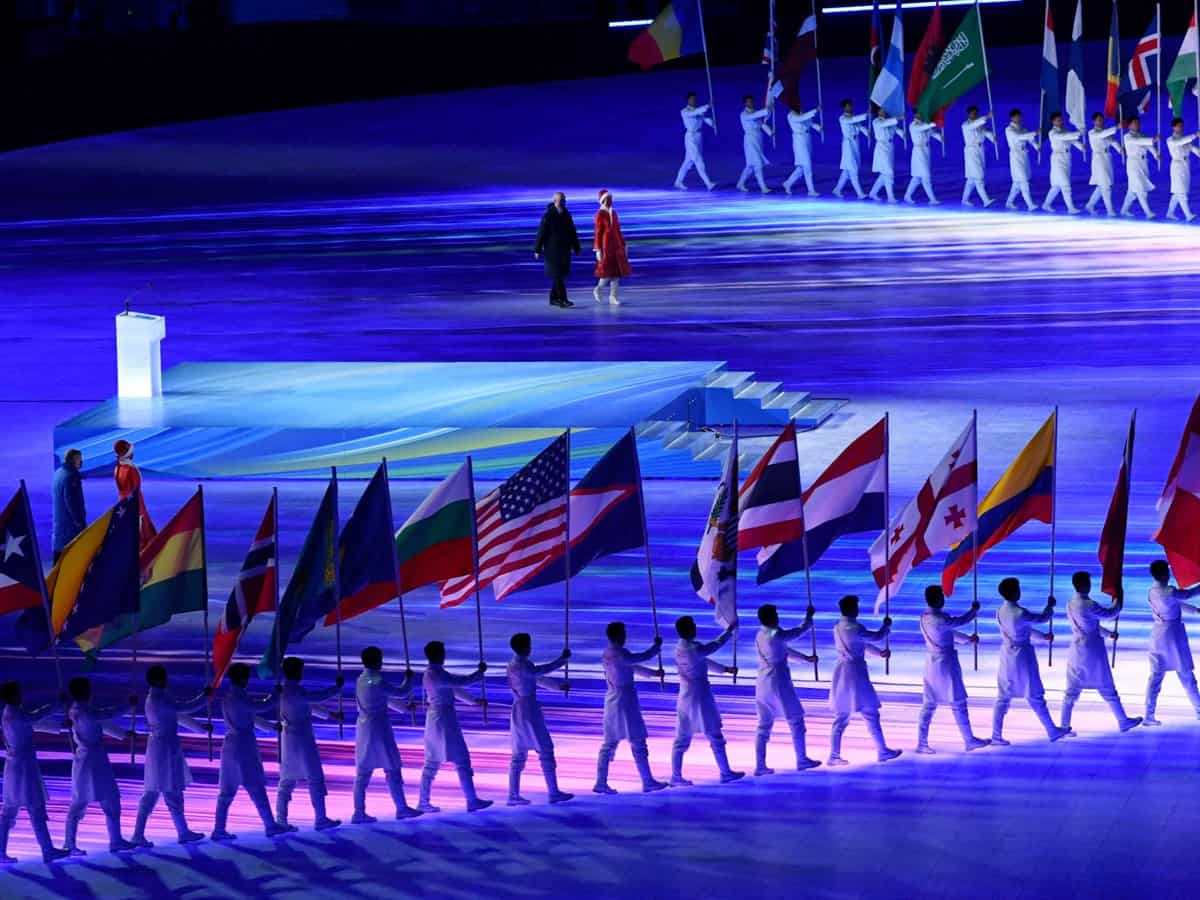

As the winter Olympics came to an end, from the Indian point of view, it showed us one glaring fact. This fact was that where sports is concerned, China will remain several miles ahead of India in the foreseeable future. Our neighbour successfully completed the conduct of a mega sports event and it even placed third in the overall medal table with 9 Gold medals. It pushed a strong contingent from the USA to fourth place.
On the internet, winter Olympics related topics have dominated the search lists ever since the Beijing winter Olympics began on Feb 4. China used the occasion to project its culture and its soft power to the entire world audience. Several knowledgeable observers hailed China’s ability both in the sports arena as well as in the organisation of the event. It proved that the International Olympic Committee’s decision to award the winter Olympics to China had been the right one despite prophecies of doom by the Western media. When the games ended, the IOC President Thomas Bach praised the smooth conduct of the event during the stressful COVID period. It was a proud occasion for China which proved to the world that it is no less capable than any European country or the USA.
While one may criticise the political gimmicks that China indulged in, such as roping an army officer involved in the Galwan incident to run the torch relay, no one can deny that the Games went off very successfully. A few cases of doping are incidents that were unfortunate, but are found in every sports event these days.
Meanwhile, when the entire world was watching the dazzling sports extravaganza in Beijing, where was India? Sadly, India was nowhere to be seen. There is a lesson here for India which must learn from China how to utilise its resources and aim for success at the international level in all sports, be it winter Olympics or summer Olympics (where also China stands head and shoulders above India).
It may be recalled that in the last summer Olympics at Tokyo in 2021, China had placed second in the medal table with 38 Gold, 32 Silver and 18 Bronze. India had placed 47th in the medal list with 1-2-4. It was India’s best ever medal tally but it looked laughably inadequate compared to China.
At the Beijing winter Olympics, first was Norway with 16 Gold, 8 Silver and 13 Bronze. Second was Germany with a tally of 12 Gold, 10 Silver and 5 Bronze and China was third with 9 Gold, 4 Silver and 2 Bronze. The USA with 8-10-7 had to be content with fourth place on the medal table. USA’s position as one of the super powers of sports is now being challenged by China – as the latest winter Olympics have shown.
This is a remarkable achievement on the part of China because just 20 years ago, none of the experts considered China as a power in winter sports. But China invested heavily in infrastructure for promoting winter sports and brought in European experts to give a fillip to the different events in the country. It needs intricate technology and top class modern software to conduct a winter Olympics and China proved to be matchless in these departments.
Meanwhile, a cricket obsessed India which lavishes huge amounts of money on one sport only, continues to languish at the bottom of both types of Olympic Games which are considered throughout the world as the pinnacle of sports achievements. Even in cricket, India has achieved only a modest amount of success in ICC tournaments despite huge support from the sponsors, the media and the fans.
India managed to send just one competitor to the Games, namely Arif Mohammed Khan of Kashmir, who tried hard and did well by his standards but he was not expected to get a medal. In 1998 when Shiva Keshvan had qualified for the winter Olympics in the Luge event, there had been plenty of talk and media reports that India will henceforth gain a foothold in winter sports and become a force to reckon with in the future. But as usual, all these tall claims remained only on paper.
Nearly a quarter of a century has passed since 1998 and India still manages to send only one competitor to the winter Games. China, which got into the business after India, is today third in the world. India’s lack of progress has happened despite the fact that India has plenty of natural resources. Gulmarg in Kashmir and other centres such as Auli in Uttarakhand have perfect venues for winter sports.
What holds India back is the lack of determination on the part of the government. There is an absence of willpower to forge ahead with concrete plans and programmes that will take India to the top levels. In India, our political leaders continue to live in a make believe world and claim that India will become a superpower one day in different fields while doing nothing to make it happen.
It is high time that our leaders acknowledge the reality and did something to improve India’s poor standing in international sport. India’s status in world sport automatically reflects on India’s image in the world community. Our leaders have to acquire the drive to match international standards. Mere talk and tall claims will not do. India will never make any progress as long as our leaders continue to talk and quote questionable statistics to cover up their inadequacy. We must move with the changing times and stay ahead of the rest of the world like China has done.
Abhijit Sen Gupta is a seasoned journalist who writes on Sports and various other subjects.



